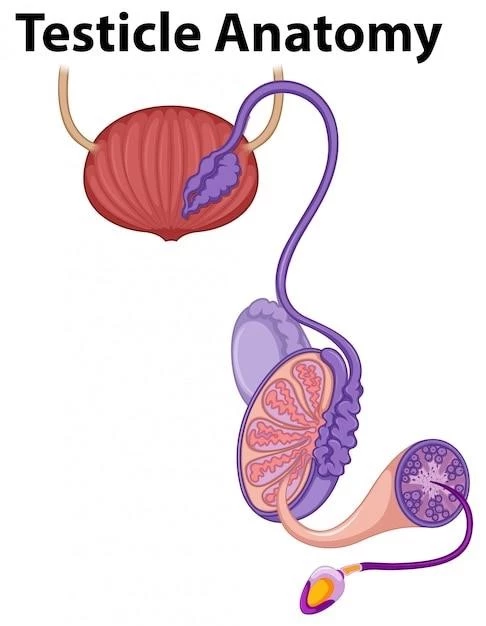Article Plan⁚ Bethanechol and Urecholine Overview
Urecholine⁚ Side Effects and Risks
Bethanechol⁚ Dosage and Administration
Urecholine⁚ Treatment for Urinary Retention
Bethanechol vs Trazodone⁚ A Comparison
Urecholine⁚ FDA Approval and Safety Information
Bethanechol Uses and Benefits
Bethanechol, a cholinergic agonist, is primarily used to treat urinary retention by stimulating bladder contractions. It helps in emptying the bladder completely, especially post-surgery or in patients with specific urinary issues. Additionally, Bethanechol can aid in managing neurogenic bladder dysfunction and can be beneficial for individuals with urinary retention due to weak bladder muscles.
Mechanism of Action
Bethanechol functions as a muscarinic receptor agonist, specifically targeting the bladder’s muscarinic receptors. By stimulating these receptors, Bethanechol promotes bladder muscle contractions, aiding in the expulsion of urine. This mechanism of action enhances bladder emptying, making it a valuable option for addressing urinary retention issues.
Therapeutic Applications
Bethanechol’s therapeutic applications extend beyond urinary retention management. It is also used to address gastrointestinal issues like delayed gastric emptying. By stimulating muscle contractions in the stomach and intestines, Bethanechol can aid in improving digestive processes. Additionally, it may be prescribed to treat certain types of atonic or hypotonic bladder conditions.
Urecholine⁚ Side Effects and Risks
Common Side Effects
Common side effects of Urecholine may include abdominal discomfort, diarrhea, nausea, excessive salivation, and flushing. These effects are typically mild and temporary, but if they persist or worsen, it is essential to consult a healthcare provider for guidance and potential adjustments to the medication regimen.
Serious Risks and Precautions
While Urecholine is generally well-tolerated, serious risks may include severe abdominal cramping, chest pain, difficulty breathing, or an irregular heartbeat. It is crucial to promptly inform a healthcare provider if any of these symptoms occur. Precautions should be taken in patients with a history of asthma, hyperthyroidism, peptic ulcer, or coronary artery disease.

Bethanechol⁚ Dosage and Administration
Recommended Dosage
The recommended dosage of Bethanechol varies based on the condition being treated. Typically, for urinary retention, the initial dose is 10-50 mg three to four times daily. Dosage adjustments should be made cautiously under the guidance of a healthcare provider to optimize efficacy while minimizing the risk of adverse effects.
Administration Guidelines
Bethanechol is typically administered orally on an empty stomach, either one hour before or two hours after meals. It is crucial to follow the prescribed dosing schedule meticulously to maintain consistent drug levels in the body. Patients should also be advised to stay adequately hydrated while taking Bethanechol to facilitate its effectiveness.
Urecholine⁚ Treatment for Urinary Retention
Efficacy in Managing Urinary Retention
Urecholine has demonstrated efficacy in managing urinary retention by stimulating bladder contractions, facilitating urine release. It is particularly beneficial for individuals with inadequate bladder emptying due to various conditions. The medication’s ability to enhance bladder muscle contractions makes it a valuable treatment option for addressing urinary retention effectively.
Comparison with Other Treatment Options
When compared to other treatment options for urinary retention, Urecholine stands out for its direct mechanism of action on bladder muscle contractions. Unlike some medications that may have systemic effects, Urecholine’s targeted approach to enhancing bladder function makes it a preferred choice for managing urinary retention in specific patient populations.
Bethanechol vs Trazodone⁚ A Comparison
Mechanism of Action and Differences
Bethanechol primarily acts as a cholinergic agonist, targeting muscarinic receptors in the bladder for enhanced contractions. In contrast, Trazodone functions as a serotonin modulator and reuptake inhibitor, exerting its effects on neurotransmitters like serotonin. These distinct mechanisms underlie the differences in their efficacy and side effect profiles when used for different therapeutic indications.
Efficacy and Safety Profiles
When comparing the efficacy and safety profiles of Bethanechol and Trazodone, it is essential to consider their respective mechanisms of action and intended uses. Bethanechol is valued for its role in promoting bladder contractions, while Trazodone is recognized for its effects on serotonin levels. Each medication has unique benefits and risks that should be carefully assessed by healthcare professionals when determining the most suitable treatment option for individual patients.
Urecholine⁚ FDA Approval and Safety Information
FDA Approval Status
Urecholine has received FDA approval for the treatment of urinary retention, making it a recognized and regulated medication for addressing specific bladder-related issues. The approval status signifies that Urecholine has undergone rigorous evaluation to ensure its safety, efficacy, and quality standards meet the requirements set forth by the regulatory authorities.
Safety Information and Regulatory Updates
Continuous monitoring of Urecholine’s safety profile is essential to track any potential adverse effects and ensure patient well-being. Regulatory updates aim to provide healthcare professionals with the most current information regarding the medication’s safety and usage guidelines. Regular updates and safety alerts help maintain optimal patient care standards and promote informed decision-making in clinical practice.
